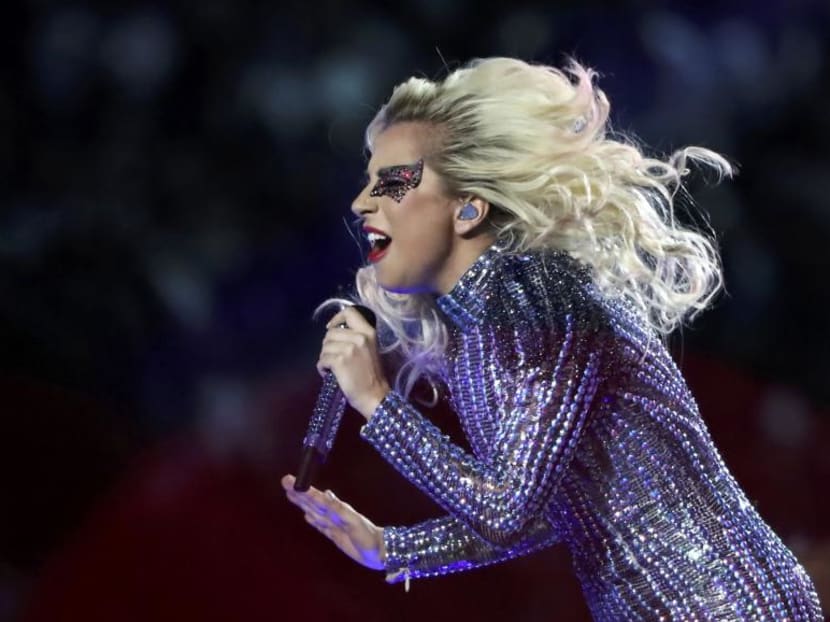Examples of offensive lyrics were used to make a point, it doesn't mean the songs will be banned: Shanmugam
SINGAPORE — A list of offensive song lyrics distributed in Parliament on Monday — a photo of which has gone viral overnight — are not examples of content that have been or would be banned, Law and Home Affairs Minister K Shanmugam has clarified.

Lady Gaga (above) will get to stay on Singapore's airwaves, even if some of her song lyrics may be deemed offensive by certain segments of society, Law and Home Affairs Minister K Shanmugam has clarified.
SINGAPORE — A list of offensive song lyrics distributed in Parliament earlier this week — a photo of which has gone viral — are not examples of content that have been or would be banned, Law and Home Affairs Minister K Shanmugam clarified on Tuesday (April 2).
During his ministerial statement on Monday, he had used the examples of those songs to make the point that just because some people find such content offensive, it does not mean they would be banned, Mr Shanmugam said on Facebook.
The photo of the song lyrics, which included snippets from popular songs such as Ariana Grande’s “God Is a Woman”, Hozier’s “Take Me To Church” and Lady Gaga’s “Judas”, was shared on Monday evening — after a parliamentary debate on hate speech — by Workers’ Party Member of Parliament Chen Show Mao on his Facebook page, along with the text "LESSON OF THE DAY. Ministerial handouts".
The post was widely shared, with many netizens questioning whether these were examples of content that would be prohibited in Singapore. Some, however, felt that the post lacked context.
In his Facebook post on Tuesday, Mr Shanmugam referred to Mr Chen's post, and said: “People who did not listen to the speech may misunderstand that the list contains songs which have been banned (!) or are going to be banned (!) All of that is untrue.”
He added: “I made the point that people may find many things offensive. And gave the list as an illustration. Doesn’t mean that it can all get banned, just because some people find it offensive. That is also a point I made in the speech.”
Mr Chen subsequently said in response to media queries that his original post "shares something new I learned on April 1: that all the lyrics cited are deemed offensive speech in the context of the ministerial statement".
"What is that context? As I understand it and as framed by the ministerial handouts that accompanied the statement, some of the questions to consider include, 'Should we allow unrestricted offensive speech in general mainstream discourse, in religion, politics, media and entertainment, even if it is not hate speech?'; 'If we agree that there have to be restrictions on offensive speech even when it is not strictly speaking hate speech, what should be the extent of the restrictions?'," he said.









